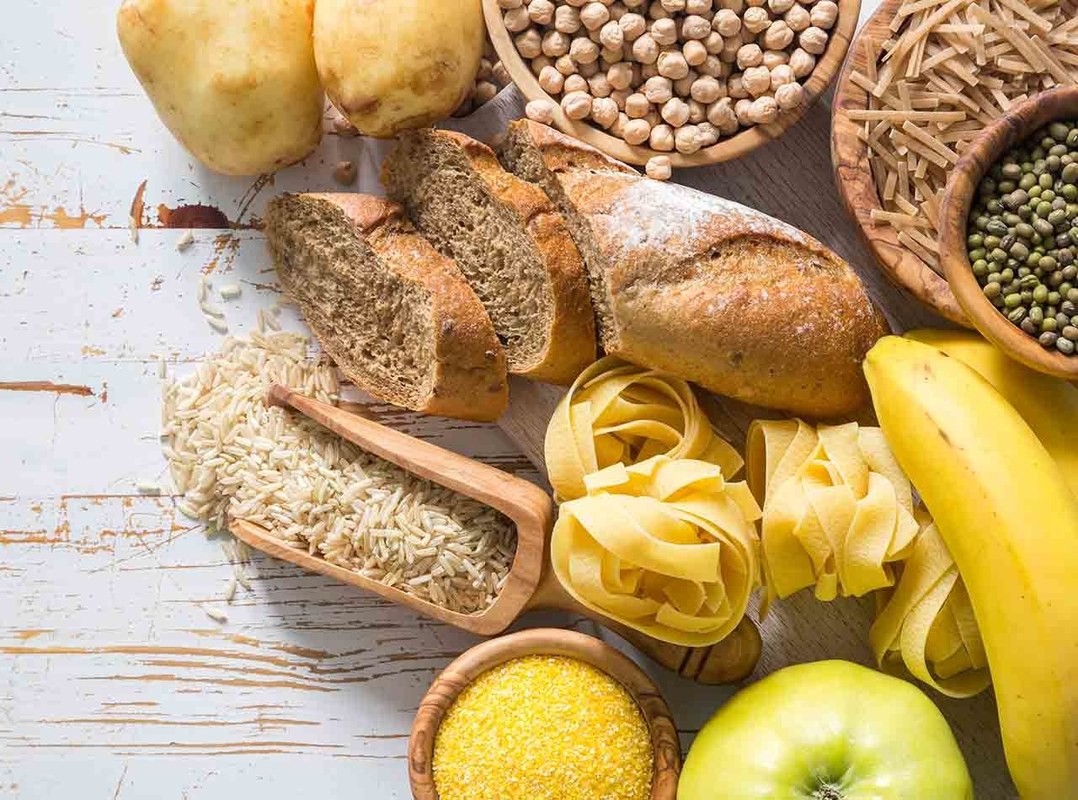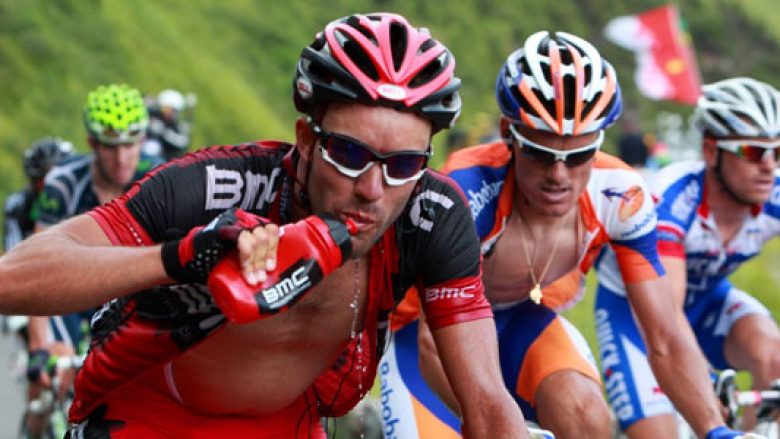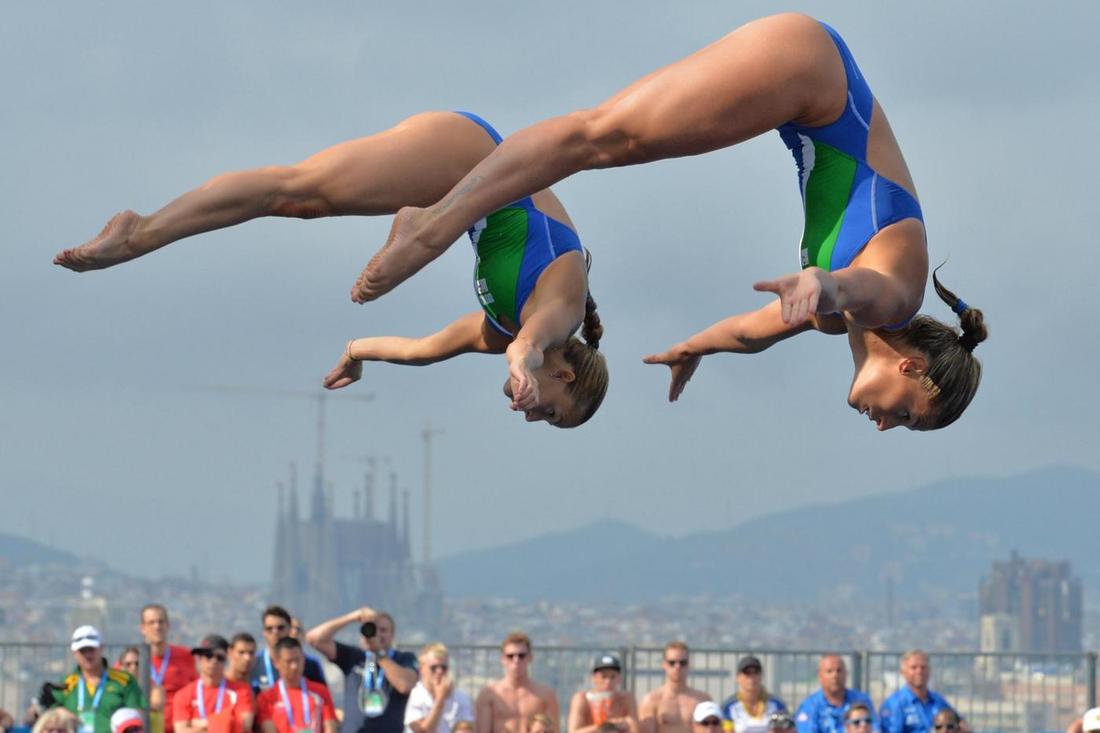|
Caffeine equates to coffee for many of us. Actually, caffeine is a stimulant that is present in leaves, nuts and seeds of plants. Athletes consume caffeine in the form of coffee, tea, cola, energy drinks, supplements or caffeinated sports products. The use of caffeine is increasing in the field of sports as it helps improve performance and different sports drinks and supplements are manufactured with caffeine as their major ingredient.
The ultimate way in which caffeine improves performance is because of its influence on the central nervous system which makes an individual feel that he/she has utilized less effort, exercising has become easier and also fatigue levels are way below normal. Earlier, it was believed that caffeine increases the use of fat during exercise and spares glycogen, but now these are not trusted as the major contributors of performance enhancement. What Kind of Sports Activities Prefer Caffeine Intake? People involved in endurance sports, team or intermittent sports and those involved in high intensity, short duration sports benefit maximum from caffeine consumption. Earlier, recommendations for caffeine consumption was on the higher range (6+ mg caffeine/kg body weight), but recent research indicate that lower levels can provide the same effective result with minimal side effects. In general, 1-3 mg caffeine per kg body weight is sufficient to improve performance. It is crucial to maintain caffeine levels within recommended ranges as increased levels of caffeine intake can cause decrease in performance via:
Carbohydrates always occupy a special position for their important role in training and performance:
Glycogen, apart from being a muscle substrate also plays a critical role in supporting the muscle’s adaptation to training. Any recommendation on carbs intake should be done considering an athlete’s training/competition program and the importance of undertaking it with increased or decreased carb portions depending on the priority at hand-boosting the performance of high quality exercise versus advocating training adaptation. Due to the lack of exact information on substrata needs of different training sessions, proportions of carb requirements are planned mostly using guesswork along with existing information on consumer-based activity, heart-rate monitors and power meters. How Much Carbs Does an Athlete Need to Excel in His/her Performance Carbohydrate needed for performance is based on the athlete’s body size and the nature of the training/sport event. The timing of carbohydrate intake during the day and with respect to training can be altered to make carbs more available or less available. These also help to sail through intense workout sessions within a given period. In the same day, some other sessions might require less of carbohydrates while exercising to boost the training stimulus or adaptive response. Such reduced availability can be easily achieved by keeping two sessions in close succession to each other without time for refueling or also by decreasing total carbs intake. Once the carbs and energy content of a diet are calculated, neither the glycemic load or glycemic index of these carb-rich meals affect metabolic or performance outcomes of training. Although, studies do exist on the metabolic advantages of exercising with low carbohydrates availability, how they would contribute to performance outcomes are still unclear. How Does Decreased Availability of Carbs Affect Performance? Exhaustion of muscle glycogen can lead to fatigue while insufficient carbohydrate availability can affect performance-influencing factors such as pacing, fatigue, motor skill and concentration. The ideal way to prevent this is to balance the carb stores in the body with fuel demands of training/activity for optimal performance. Nutrition strategies taken up by athletes should promote optimal performance. They should address all the factors that can cause fatigue and decreased output during the end of any performance. Some factors that can affect performance output of an athlete include dehydration, electrolyte imbalances, glycogen depletion, hypoglycemia, gastrointestinal discomfort and imbalance in acid-base ratio. Fluids or supplements taken before, during and after any sporting event can delay or prevent the attack of these factors.
Hydration Tips for Fluid & Electrolyte Balance Staying hydrated is important for optimal health and exercise performance. Apart from every day fluid losses from respiration, gastrointestinal, renal and sweat sources, athletes need to take care of sweat losses that occur greatly due to performance in an event or while training. Sweating and dehydration though used interchangeably have a slight difference in meaning. Sweat is the by-product of muscular work (hypovolemia) aggravated by environmental factors while dehydration is the process of losing water content in the body resulting in hypohydration. Apart from water, sweat contains major quantities of sodium with lesser amounts of potassium, calcium and magnesium. The fluid needs gain more prominence or less prominence depending on the athlete’s body type, type of exercise and the environment. Different fluid deficiency ranges can affect different abilities:
Some athletes might be hypohydrated before exercise purposefully, due to longer training sessions or multiple events in a day that can affect their performance greatly. It is recommended that athletes consume fluids (or include sodium in pre-exercise fluids and foods) equivalent to 5-10 ml/kg BW some 2-4 hours prior exercising to get the pale-yellow coloration of urine. Some athletes try to hyperhydrate before exercising during hot weathers which can lead to ample sweat loss or sometimes, restrictions imposed on fluid intake can lead to fluid deficits. Athletes use glycerol and other plasma expanders for this purpose and this has been banned by the World Anti-Doping Agency. Hydration While Exercising Every person expels sweat at different rates based on exercise intensity, duration, fitness, heat acclimatization, altitude and other environmental factors as well. Book wise, athletes are expected to drink enough fluids to replace sweat losses and maintain fluid deficit to <2% BW. Sometimes, the athlete might be careless and ignore consuming fluids while exercising and at other times certain other factors may impair fluid availability or opportunity to consume them during exercise. Generally, when high caliber athletes train, sweat loss exceeds fluid intake. While the base rule of sweat loss remains the same for athletes, differences in drinking behavior and sweat rates of athletes can result in anything from dehydration to over-hydration. A loss of 1kg BW represents 1L sweat loss. Normally, athletes should consume 0.4 to 0.8 L/h, but the quantity might be slightly high or low depending on the athlete’s tolerance, experience, availability of time for fluid consumption and benefits of consuming other nutrients in liquid form. Athletes can choose flavored cold beverages to increase self-induced fluid intake. Earlier athletes used to reach fluid deficit rates over the course of training and during the past 2 decades, this scenario has changed. It has improved such that, some recreational athletes exceed their sweat loss rates and over-hydrate resulting in water intoxication and hyponatremia. This scenario is typically seen in recreational athletes compared to competitive athletes whose opportunity and belief to drink are greater. Athletes ending up with hyponatremia experience nausea, vomiting, bloating, puffiness, headache, confusion, weight gain, delirium, respiratory distress, seizures or even death, if left untreated. Skeletal muscle cramps in athletes may be due to hypohydration and electrolyte imbalance. Athletes who have the tendency to sweat more, especially when sweat is laden with sodium are at a greater risk of cramping. Post-exercise Hydration Most athletes near their end of training practice with fluid deficit and may need to restore euhydration during recovery. Rehydration generally includes drinking water and including sodium at a modest rate that minimizes urinary losses. Consuming sodium helps to retain ingested fluids and it is highly irrational to advise an athlete to restrict sodium intake post-workout schedules. Effective rehydration includes consuming greater volumes of fluid (125%-150%) than final fluid deficits. Also, excessive consumption of alcohol during the recovery period is not appreciated considering its diuretic effects. Every sport requires a different physique to succeed. Body size, shape and composition are crucial for succeeding in any sport among which body mass and composition are pivotal for athletes as they can use these as per their needs. Meanwhile, athletes should also remember that body weight and composition are not the only deciders of athletic performance, but are star factors to be considered during preparation.
In sports involving strength and power, athletes wish for fat-free mass while athletes from other sports try to gain absolute size and strength. Power athletes aim for low body fat levels while athletes involved in weight-related sports (weightlifting, lightweight rowing or combat sports) aim for the lowest-achievable BW category while maximizing lean mass within the target. Distance runners and cyclists are advantageous when they possess a favorable ratio of weight to surface area for heat dissipation. Gymnasts, divers and dancers, in general athletes involved in acrobatic sports gain biomechanical advantage when they can easily sway their body in a limited space. While each sport requires a different body composition, athletes work hard for unrealistic weight/body mass in unrealistic time periods. These athletes expose themselves to continuous dieting, workout excessively and practice extreme weight control policies to achieve success with a leaner body composition. When athletes do this, their health is affected, performance is disrupted, and they might even succumb to eating disorders sometimes. Athletes can improve health and performance with decreased body fat or weight when they plan for it. At the same time, the athlete should also take care to avoid too much weight gain due to sudden decrease in energy spent, as in the case of some injury or during rest period. Some sports demand high increase in body fat for performance and when athletes succumb to these requirements, they might be categorized as “obese” which increases their risk of metabolic syndrome. Sports dietitians play an integral role here, in monitoring athletes involved in sports that aim for high BMI and preventing them from being affected by metabolic risk factors. |
AuthorDietitian & Nutritionist Dr. Nafeesa Imteyaz. ArchivesCategories |
- Home
- Written Testimonials
- Consult
- Clinics
- Blogs
-
Diet & Nutrition
- Diabetes Reversal
- IVF IUI not needed for PCOS PCOD Infertility
-
Medical Nutrition
>
-
Disease & Conditions
>
- Infertility | PCOS
- Diabetes Mellitus
- Cholesterol
- Hypothyroid
- Kidney Problems
- Hypertension
- Cardiovascular Diseases
- Liver Diseases
- Gastro intestinal disorder
- Cancer
- Metabolic Disorders
- Orthopedic Disorders
- Eating Disorders
- Dietary Recall
- Weight Record Filled By Clients
- Online Payment Transaction Details
- Online Clients Weight Check Form
- Our Program Package Service Charges
- Weight Record 2017 Clients
- Measurements sent by Clients
- Terms & Conditions Of Payment
- Thanks. Your Form is Submitted
- Video Testimonials
- Lifestyle & Wellness
- Lifestyle & Wellness Blog
- Allergy & Intolerance
- Weight Loss / Gain
- Weight Loss / Slimming Blog
-
Disease & Conditions
>
- Life Cycle Nutrition >
- Sports Nutrition >
- Integrity in Nutrition
- Knowledge Centre
© COPYRIGHT 2022. ALL RIGHTS RESERVED. FRST HEALTHCARE PVT LTD.
Dr. Nafeesa Imteyaz of First Eat Right clinic, is the Best Dietitian Nutritionist in Bangalore. Best Dietitian Nutritionist in Pune. Best Dietitian Nutritionist in Hyderabad. Best Dietitian Nutritionist in Chennai. Best Dietitian Nutritionist in Mumbai. Best Dietitian Nutritionist in Delhi. Best Dietitian Nutritionist in Kolkata.




